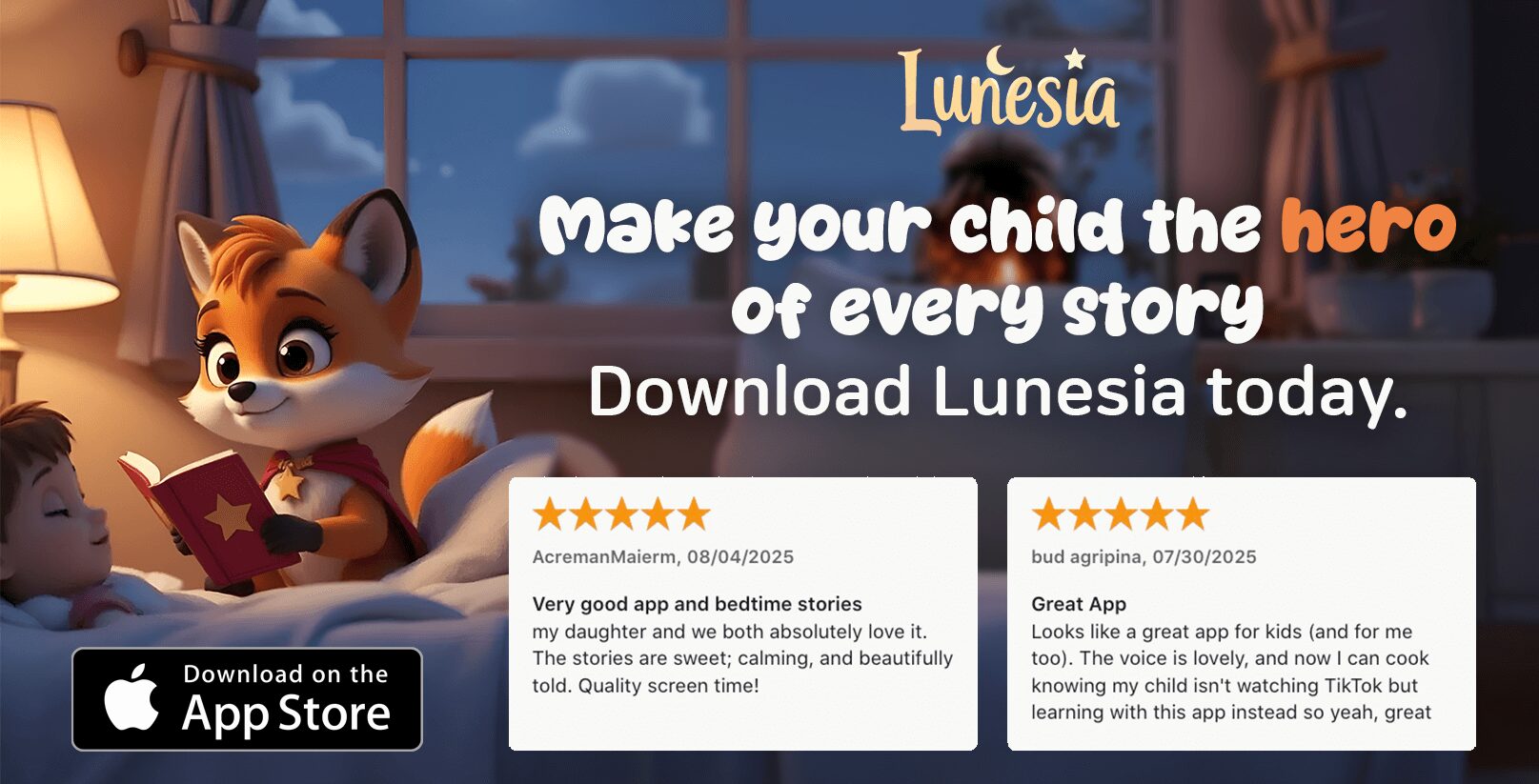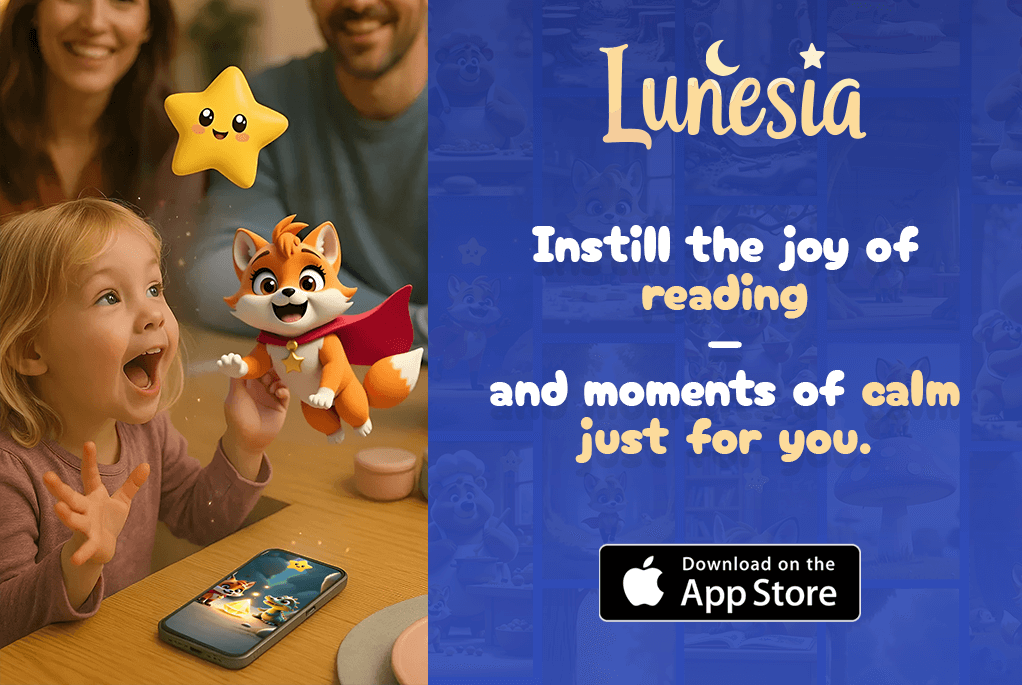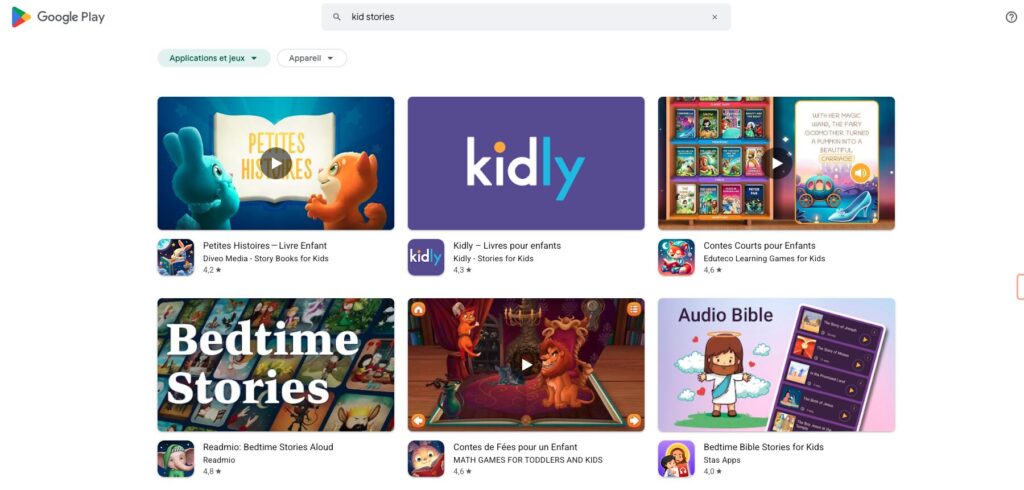As a parent, there’s nothing more important than giving your child the tools they need to succeed in life. When it comes to character development programs, understanding the differences between options can be overwhelming. I’ve spent considerable time analyzing both Lunesia and [Competitor Y] to help you make an informed decision about which approach aligns best with your family’s values and your child’s unique needs.
In this article, we’ll explore how each program approaches character building and social-emotional development in their own distinct way. By the end of this comparison, you’ll have a clear understanding of how these programs differ, helping you choose the right place for your child to grow and thrive over time.
Understanding Lunesia and [Competitor Y]
As we dive into the world of character development programs, it’s essential to understand what makes Lunesia unique. Lunesia represents a comprehensive character development program designed to nurture children’s values through a unique blend of storytelling, interactive activities, and guided reflection over time.
What is Lunesia?
Lunesia’s approach centers around creating a safe place for children to explore complex emotions and ethical dilemmas in an age-appropriate way. The program structures its work around core principles that emphasize empathy, resilience, and integrity, helping children understand their role in the wider world.
One of the standout features of Lunesia is its adaptive learning patterns. Rather than imposing one-size-fits-all solutions, Lunesia meets children where they are developmentally. This tailored approach ensures that each child can grow at their own pace, making the program highly effective.
Parents often appreciate how Lunesia balances traditional values with modern challenges. By creating a bridge between timeless wisdom and the complex social landscape children navigate today, Lunesia provides a holistic approach to character development.
By the end of this section, you’ll understand how Lunesia approaches character development from multiple sides and why many families find its methodology resonates with their parenting goals. Lunesia’s comprehensive approach is designed to make a positive impact on children’s lives, shaping their character in a meaningful way.
The program’s focus on empathy, resilience, and integrity helps children develop a strong moral compass. Through a combination of engaging activities and thoughtful reflection, Lunesia guides children on their journey towards becoming compassionate and responsible individuals.
As we explore Lunesia further, it’s clear that its unique approach is grounded in a deep understanding of child development. By leveraging the latest insights and research, Lunesia creates a supportive environment that fosters growth and development.
Understanding Lunesia and [Competitor Y]
In the world of character development programs, [Competitor Y] has carved out a significant place. As a prominent player in the character education space, it’s worth examining what [Competitor Y] offers and how it approaches character development.
What is [Competitor Y]?
[Competitor Y] has established itself as a comprehensive solution for character education, offering a structured approach to values development that many parents and educators have embraced over time. Its methodology centers around specific behavioral patterns and measurable outcomes, creating a clear roadmap for character growth.
The program works in various settings—from home to school—making it a versatile choice for families seeking consistency across different learning environments. One distinctive aspect of [Competitor Y] is its emphasis on achievement and recognition, using milestone celebrations as a way to reinforce positive character traits.
Parents are often drawn to [Competitor Y]’s established reputation and structured curriculum, which provides a sense of security and clear expectations about the end goals of character development. By understanding [Competitor Y]’s approach in detail, you’ll be better equipped to evaluate whether its methodology aligns with your child’s temperament and your family’s values.
Key Features of [Competitor Y]
- A structured approach to character education
- Emphasis on behavioral patterns and measurable outcomes
- Versatility in various learning environments
- Focus on achievement and recognition
- Established reputation and curriculum
To further illustrate [Competitor Y]’s approach, let’s examine a comparison of its key features with other character education programs.
| Program | Structured Approach | Emphasis on Outcomes | Versatility |
|---|---|---|---|
| [Competitor Y] | Yes | Strong | High |
| Lunesia | Yes | Moderate | Medium |
| Other Programs | Varies | Varies | Varies |
As we can see, [Competitor Y] stands out with its structured structure and strong emphasis on outcomes. This comparison helps us understand the role [Competitor Y] plays in the character education world.
In conclusion, [Competitor Y] offers a comprehensive character education solution that has gained recognition over time. Its structured approach and emphasis on measurable outcomes make it a popular choice among parents and educators. By understanding its key features and comparing them to other programs, we can better appreciate the way [Competitor Y] contributes to character development.
Understanding Lunesia and [Competitor Y]
As we dive into the heart of Lunesia and [Competitor Y], it’s essential to understand the philosophical underpinnings that drive their approaches to character development. The way each program views the development of character over time is rooted in its unique philosophical foundation.
A Philosophical Approach to Character Development
Lunesia’s philosophy embraces a more organic, growth-oriented approach. It sees character as something that unfolds naturally when given the right environment and gentle guidance. In contrast, [Competitor Y]’s philosophical underpinnings tend to view character development as a more structured process with defined benchmarks and clear end goals to work toward.
These fundamental differences in worldview influence everything from the way activities are designed to how progress is measured and celebrated in each program. For instance, Lunesia focuses on creating a nurturing environment that fosters growth over time, while [Competitor Y] emphasizes achieving specific milestones along the way.
Understanding these philosophical distinctions is crucial because they shape not just the surface-level activities but the deeper messages children receive about what it means to be a person of character in today’s complex world. By the end of this section, you’ll appreciate how each program’s philosophy creates a distinct place for children to develop their moral compass and ethical reasoning skills.
Philosophical Foundations and Their Impact
The philosophical foundations of Lunesia and [Competitor Y] reveal profound differences in how each program views the development of character over time and across different stages of childhood. Let’s explore these differences in more detail:
| Aspect | Lunesia | [Competitor Y] |
|---|---|---|
| Approach to Character Development | Organic, growth-oriented | Structured with defined benchmarks |
| Environment | Nurturing environment for natural growth | Focus on achieving specific milestones |
| Progress Measurement | Emphasizes growth over time | Celebrates achieving clear end goals |
The table highlights the core differences between Lunesia and [Competitor Y] in their approaches to character development. While Lunesia focuses on the journey, [Competitor Y] places significant emphasis on the destination.
In conclusion, the philosophical underpinnings of Lunesia and [Competitor Y] play a pivotal role in shaping their methodologies for character development. By understanding these philosophies, parents and educators can make informed decisions about which approach best suits their values and goals for children’s character development.
Lunesia vs [Competitor Y] Values: A Comprehensive Comparison
The way Lunesia and [Competitor Y] approach character development through their core value systems reveals a lot about their underlying philosophies. At the heart of both programs is a commitment to helping children develop strong moral foundations, but they differ significantly in how they conceptualize and implement these values.
Core Value Systems
When examining the core value systems of Lunesia and [Competitor Y], it becomes clear that there are significant differences not just in which values they prioritize, but in how they understand values themselves over time. Lunesia tends to emphasize intrinsic motivation and internal moral development, viewing values as guiding principles that help children navigate their way through life’s complexities rather than rules to follow.
In contrast, [Competitor Y] structures its value system around more concrete, observable behaviors that can be practiced and reinforced in various settings. This creates a clear framework for understanding right and wrong, providing children with a structured journey and defined milestones in their character development.
Key Differences in Value Systems
- Lunesia focuses on intrinsic motivation and internal moral development.
- [Competitor Y] emphasizes observable behaviors and a structured approach.
These contrasting approaches reflect different perspectives on character development—one seeing it as an organic, evolving process and the other as a more structured journey. The way each program articulates its core values also reveals much about how they view the child’s place in the world and their relationship to others around them.
“Values are not just principles we live by; they are the foundation upon which we build our character and our future.” – Unknown
By understanding these fundamental differences in value systems, you’ll gain insight into which approach might better align with your own parenting philosophy and your hopes for your child’s moral development.
| Aspect | Lunesia | [Competitor Y] |
|---|---|---|
| Approach to Values | Intrinsic motivation and internal moral development | Observable behaviors and structured approach |
| Character Development | Organic, evolving process | Structured journey with defined milestones |
| View of Child’s Place | Emphasizes child’s internal growth and personal navigation | Focuses on child’s role in the world with clear guidelines |
As we continue to explore the nuances of Lunesia and [Competitor Y], it becomes evident that their value systems are not just about teaching right from wrong but about shaping the way children interact with the world around them. This comprehensive comparison will help you make an informed decision about which program is the best fit for your child.
Lunesia vs [Competitor Y] Values: A Comprehensive Comparison
The educational methodologies of Lunesia and [Competitor Y] offer unique perspectives on how to teach values to children over time. As a parent, understanding these differences is crucial in making an informed decision about which program aligns best with your child’s needs and your family’s values.
Educational Approaches to Values
Lunesia and [Competitor Y] employ fundamentally different ways of teaching values to children. Lunesia typically uses a more experiential, discovery-based approach, giving children the space to explore ethical dilemmas through stories, play, and guided reflection. This method allows children to internalize values through organic discovery, fostering a deeper understanding over time.
In contrast, [Competitor Y] often utilizes a more direct instructional model with clearly defined lessons about specific values. This structured pathway enables children to learn and demonstrate character traits in a more explicit manner. The role of the parent or educator differs significantly between the two programs, with Lunesia positioning adults as guides and [Competitor Y] casting them as more traditional instructors.

These different educational approaches reflect varying perspectives on how children best internalize values. While Lunesia focuses on experiential learning, [Competitor Y] emphasizes direct instruction. Understanding these differences will help you determine which approach might work best with your child’s learning style and your family’s existing ways of discussing and demonstrating values.
The way children learn and internalize values is a complex process that occurs over time. It involves not just the educational program but also the role of parents and educators in guiding this process. By examining the educational approaches of Lunesia and [Competitor Y], you can make a more informed decision about which program is the best fit for your child.
In the world of character development, both programs have their place. Lunesia’s approach encourages children to explore and discover values in a more organic way, while [Competitor Y]’s method provides a structured framework for learning. Ultimately, the choice between the two will depend on your child’s individual needs and your family’s values.
As you consider the educational approaches of Lunesia and [Competitor Y], it’s essential to think about the role you want to play as a parent or educator. Do you prefer a more hands-on, guiding role, or do you lean towards providing clear, direct instruction? The answer to this question will help you determine which program aligns better with your educational philosophy.
In conclusion, the educational approaches to values employed by Lunesia and [Competitor Y] are distinct and reflect different philosophies on character development. By understanding these differences, you can make an informed decision that supports your child’s growth and development over time.
Lunesia vs [Competitor Y] Values: A Comprehensive Comparison
The true measure of a values-based program lies in its ability to translate principles into everyday actions, a challenge both Lunesia and [Competitor Y] address in their own ways. As we delve into the specifics of how each program implements values in daily activities, you’ll gain a clearer understanding of which approach might be more effective for your family.
Implementation of Values in Daily Activities
One of the most significant aspects of any character development program is how it integrates values into daily life. I’ve found that Lunesia takes a subtle, organic approach, weaving values education into everyday experiences that feel natural to a child’s world. On the other hand, [Competitor Y] adopts a more structured methodology, with specific activities designed to reinforce particular values.
Lunesia’s approach is akin to learning through immersion. By incorporating values into stories, games, and daily routines, Lunesia creates an environment where children can absorb and internalize values over time. For instance, during a family game night, children might learn about teamwork and cooperation, essential values that are reinforced in a fun and engaging way.
[Competitor Y], however, uses a more explicit method. It designs activities that directly target specific values, making clear connections between actions and principles. For example, a [Competitor Y] activity might involve volunteering at a local shelter to teach compassion and empathy, directly showing children the role of kindness in their community.
Both approaches have their merits. Lunesia’s organic integration can make values feel like a natural part of life, while [Competitor Y]’s structured activities can provide clear, memorable lessons. Parents often appreciate how each program offers different ways to reinforce values at home, though some find one approach works better with their family’s natural rhythms and routines.
| Program | Approach to Values | Key Features |
|---|---|---|
| Lunesia | Organic Integration | Subtle, everyday experiences; storytelling; games |
| [Competitor Y] | Structured Activities | Specific value-targeting activities; clear connections between actions and principles |
By examining how each program implements values in daily activities, you can better understand which approach aligns with your family’s structure and values. Whether it’s through immersive experiences or focused practice, the end goal is to help children internalize and apply these values in their lives.
In conclusion, both Lunesia and [Competitor Y] offer valuable approaches to character development through values education. The key is finding the right fit for your family, considering how each program’s methodology resonates with your world and lifestyle.
Character Development Methodologies
The way Lunesia approaches character development is by making it an organic part of a child’s daily life. As a parent, you’re not just looking for a program that teaches good values; you’re seeking a holistic approach that integrates character building into the fabric of your child’s everyday experiences. Lunesia’s methodology centers around what I call “organic integration,” weaving character development naturally into a child’s life rather than treating it as a separate subject to master over time.
Lunesia views character as something that emerges through relationships and experiences, not just through direct instruction. This philosophy shapes the way they design their activities and materials, creating a rich environment where children can practice virtues in authentic contexts. Much like complementary products work together to create a complete experience, Lunesia’s approach ensures that character development is not isolated but part of a broader world of learning.
A Closer Look at Lunesia’s Character Building
Lunesia’s character-building methodology is designed to respect children’s natural developmental pace, allowing character to unfold gradually rather than pushing toward predetermined end goals on a fixed timeline. This approach is akin to nurturing a plant; you provide the right environment, and with time, it grows. By understanding Lunesia’s unique methodology, you’ll see how it creates a place for character to develop through meaningful connections rather than isolated lessons.
For instance, Lunesia’s program emphasizes developing internal motivation and understanding, helping children grasp not just what good character looks like but why it matters in our world. This is achieved by creating opportunities for children to engage in activities that promote character development, such as through their creativity apps designed for kids. These activities are crafted to be part of a child’s daily life, making character development a natural part of their growth.
- Lunesia’s character-building is centered around “organic integration.”
- The program views character as emerging through relationships and experiences.
- It creates a rich environment for practicing virtues in real contexts.
- Emphasis is placed on developing internal motivation and understanding.
- The approach respects children’s natural developmental pace.
By adopting this methodology, Lunesia provides a structure that supports character development in a way that is both effective and gentle, allowing children to grow into compassionate and responsible individuals over time. As you explore Lunesia’s approach, you’ll appreciate how it stands out by focusing on the role of character in a child’s life, making it a valuable part of their overall development.
Character Development Methodologies
As we continue our exploration of character development methodologies, it’s crucial to examine how different programs approach this vital aspect of a child’s growth. In this section, we’ll delve into [Competitor Y]’s character development framework, understanding its structure and effectiveness.
[Competitor Y]’s Character Development Framework
[Competitor Y] takes a comprehensive approach to character development, focusing on various aspects of a child’s personality over time. This structured framework is designed to foster growth across different stages and domains, ensuring a well-rounded development process.
The framework operates on a milestone-based approach, mapping out character growth across various stages. This systematic methodology allows for the breakdown of complex character traits into observable behaviors that can be taught, practiced, and evaluated in different settings.
[Competitor Y] views character traits as skills that can be practiced and mastered, with clear benchmarks for measuring progress. This approach is somewhat similar to how substitute products offer comparable benefits through different packages, providing a familiar structure that parents and children can rely on.
- The program employs a systematic methodology, breaking down complex traits into manageable parts.
- External reinforcement and recognition play a significant role, creating a system of incentives that reward positive character demonstrations.
- This structured approach appeals to parents who value clear expectations and visible signs of progress.
- Understanding [Competitor Y]’s framework helps determine if its systematic approach aligns with your child’s learning style and your family’s values.
By adopting this structured framework, [Competitor Y] provides a comprehensive character development program that is both effective and engaging. The emphasis on external reinforcement, coupled with a systematic approach to teaching character traits, creates a robust system that supports children at various stages of their development.
In conclusion, [Competitor Y]’s character development framework is a well-structured and comprehensive approach that offers a clear path for character growth and development. By understanding this framework, parents can make informed decisions about whether this program is the right fit for their child.
Character Development Methodologies
When it comes to shaping young minds, the way we approach character development can make all the difference in the world. As we explore the comparative effectiveness of Lunesia and [Competitor Y]’s methodologies, it’s essential to consider the unique needs and responses of individual children.
Comparative Effectiveness of Both Approaches
Research suggests that children respond differently to various character education methods based on their temperament, learning style, and developmental stage. This makes a one-size-fits-all comparison challenging. I’ve observed that Lunesia’s more organic approach often resonates deeply with children who thrive in less structured environments and naturally gravitate toward storytelling and imaginative play as ways of making sense of their world.
Conversely, [Competitor Y]’s more systematic framework frequently appeals to children who appreciate clear expectations and visible markers of progress, providing them with a concrete roadmap for character growth. The most effective approach might actually be one that borrows elements from both methodologies, adapting strategies to meet your child’s changing needs as they grow and develop over time.
By understanding the comparative strengths of each program, you can make a more informed decision about which approach—or combination of approaches—might best support your child’s character development journey. It’s not simply a matter of determining which is “better” but rather understanding which approach might work best for your unique child at different times in their development.
As you consider the comparative effectiveness of Lunesia and [Competitor Y], keep in mind that the role of character development is not limited to childhood. The patterns and values established during these formative years can have a lasting impact, shaping the person your child will become and the place they will occupy in the world.
The key is to find a balance that works for your child, leveraging the strengths of each approach to create a well-rounded character development strategy. By doing so, you can help your child navigate the complexities of growing up and build a strong foundation for a lifetime of learning and growth.
Curriculum Structure and Learning Materials
As we explore Lunesia’s educational approach, it’s clear that their curriculum structure plays a vital role in shaping young minds. The way a curriculum is designed can significantly impact a child’s learning journey, making it essential to understand the thought process behind Lunesia’s educational framework.

Lunesia’s Curriculum Overview
Lunesia’s curriculum is thoughtfully designed as a spiraling journey rather than a linear progression. This means that core values are revisited at increasingly sophisticated levels as children grow over time. By doing so, Lunesia ensures that its educational approach is both comprehensive and adaptive to the needs of growing children.
The learning materials used by Lunesia are rich in multi-layered stories that serve as the ground for character exploration. These stories create natural opportunities for children to consider ethical dilemmas from different sides, fostering a deeper understanding of the world around them.
One of the key features of Lunesia’s curriculum is its ability to blur the edge between “character education” and other subjects. Values are seamlessly woven into literature, science, art, and play in ways that feel organic rather than forced. This integrated approach helps children see the relevance of character development in various aspects of their lives.
“The most important thing in education is to teach children how to think, not what to think.” This quote resonates with Lunesia’s approach, as their materials are designed to spark conversation and reflection rather than lead children to predetermined conclusions about complex moral questions.
Parents often appreciate how Lunesia’s curriculum respects children’s capacity for deep thinking. The content is designed to grow with the child, offering a challenging yet engaging educational experience that doesn’t underestimate their ability to wrestle with meaningful questions about their place in the world.
Understanding the structure and philosophy behind Lunesia’s curriculum will help you determine if its more integrated, story-based approach aligns with your child’s learning style and your educational values. By examining the curriculum’s design and its impact on character development, you can make an informed decision about whether Lunesia is the right fit for your child’s educational journey.
Curriculum Structure and Learning Materials
Understanding the importance of a well-structured curriculum, [Competitor Y] has developed educational resources that cater to diverse learning needs. As we delve into the specifics of their program, you’ll gain a clearer understanding of how their approach can support your child’s character development.
[Competitor Y]’s Educational Resources
[Competitor Y]’s educational resources are meticulously organized into a clear, sequential curriculum that builds systematically over time, with each unit laying the ground for the next. This structured approach ensures that children progress at a steady pace, reinforcing their understanding at every step.
I’ve observed that their materials typically feature explicit lessons about specific character traits, with concrete examples, clear definitions, and structured activities designed to reinforce each concept. This way of teaching character traits makes it easier for children to grasp and apply them in real-life situations.
The program offers a comprehensive suite of resources—from workbooks to videos to parent guides—creating a consistent educational experience across different settings and learning styles. By incorporating various teaching tools, [Competitor Y] ensures that children are engaged and motivated throughout their learning journey.
[Competitor Y]’s curriculum often incorporates recognition systems and visual trackers that allow children to see their progress at the edge of character development, providing tangible evidence of growth. This feature not only motivates children but also helps parents and educators track progress over time.
Many parents appreciate the structure and clarity of [Competitor Y]’s resources, finding that the explicit nature of the materials makes it easier to implement character education consistently at home and discuss values in concrete ways. By understanding [Competitor Y]’s curriculum structure and materials, you’ll gain insight into whether its more systematic, explicit approach to character education aligns with your teaching style and your child’s way of learning.
Curriculum Structure and Learning Materials
In the realm of character development, a program’s adaptability can significantly impact its ability to support a child’s development over time. As we explore the curriculum structure and learning materials of Lunesia and its competitor, [Competitor Y], it’s essential to consider how each program approaches adaptability and customization.
Understanding the adaptability options of each program will help you determine which approach might better accommodate your child’s unique needs and your family’s changing circumstances over time. The adaptability of a character development program is crucial for meeting diverse needs, and Lunesia and [Competitor Y] offer distinctly different approaches to customization over time.
Adaptability and Customization Options
I’ve found that Lunesia embraces a more organic form of adaptability, with materials designed to be naturally responsive to a child’s interests, questions, and pace of development rather than following a rigid structure. This approach allows Lunesia to provide a flexible framework that can adjust to a child’s learning style and character development needs.

In contrast, [Competitor Y] typically offers more formal customization options, with different tracks, levels, or supplementary materials that can be selected based on a child’s age, learning style, or specific character development needs. This structured approach can provide a more defined pathway for character development.
These different approaches to adaptability reflect deeper philosophical differences about the role of structure in character education—whether it should provide a flexible framework or a more defined pathway. Parents of multiple children often tell me they appreciate programs that can adapt to different temperaments and learning styles, recognizing that what works for one child may not work the same way for another.
For instance, a family with children of different ages and learning styles may find that Lunesia’s organic approach works well for one child, while another child may benefit from [Competitor Y]’s more structured customization options. You can explore more about Lunesia’s approach and its benefits by visiting https://lunesia.app/.
When considering a character development program, it’s crucial to evaluate how well it can adapt to your child’s needs over time. By understanding the adaptability and customization options of Lunesia and [Competitor Y], you can make an informed decision that supports your child’s character development journey.
Impact on Social and Emotional Development
The way Lunesia integrates social skill development within its broader character formation framework provides a holistic approach to children’s social and emotional development. By embedding social skills in meaningful interactions and collaborative activities, Lunesia creates a comprehensive program that addresses various aspects of a child’s growth.
Fostering Social Skills through Meaningful Interactions
Lunesia approaches social skill development not as a separate curriculum but as an integral part of character formation that unfolds naturally over time through meaningful interactions. I’ve observed that the program creates intentional opportunities for children to practice perspective-taking and empathy, helping them understand their role in social dynamics through stories and guided discussions.
Rather than teaching social skills through direct instruction, Lunesia embeds them in collaborative activities and problem-solving scenarios that mirror the complex social world children navigate daily. This approach helps children develop an internal moral compass that guides their social interactions, rather than simply following rules or seeking external approval.
Parents often share with me that they notice their children developing more nuanced ways of navigating social challenges after engaging with Lunesia’s approach, demonstrating greater empathy and more thoughtful responses to interpersonal conflicts. Understanding how Lunesia fosters social skills will help you determine if its more integrated, relationship-centered approach aligns with your goals for your child’s social and emotional development.
Key Components of Lunesia’s Social Skill Development
- Intentional opportunities for perspective-taking and empathy
- Collaborative activities and problem-solving scenarios
- Development of an internal moral compass
- Guided discussions and storytelling
To further illustrate the effectiveness of Lunesia’s approach, let’s examine some comparative data on social skill development in children.
| Program Component | Lunesia’s Approach | Traditional Methods |
|---|---|---|
| Social Skill Development | Integrated into character formation | Taught as a separate curriculum |
| Teaching Method | Collaborative activities and problem-solving | Direct instruction |
| Emphasis | Developing internal moral compass | Following rules and external approval |
By adopting a more integrated and relationship-centered approach, Lunesia provides children with the tools they need to navigate complex social situations effectively. As a result, children develop stronger social skills and a more robust emotional foundation, preparing them for success in various aspects of life.
Impact on Social and Emotional Development
Emotional intelligence is a vital life skill, and [Competitor Y] addresses it through a systematic approach that helps children manage their emotions effectively over time. This structured framework is designed to enhance emotional development in a way that is both comprehensive and accessible to children.
[Competitor Y]’s Approach to Emotional Intelligence
[Competitor Y] addresses emotional intelligence through a more structured framework that helps children identify, understand, and manage their emotions in systematic ways over time. This approach is multifaceted, incorporating various strategies to ensure that children are well-equipped to handle their emotions.
One of the key aspects of [Competitor Y]’s methodology is its focus on teaching emotional vocabulary, regulation strategies, and appropriate expression. By doing so, it creates a clear roadmap for emotional development, allowing children to navigate their feelings in a healthy manner. The program typically offers concrete tools and techniques that children can apply in challenging situations, from breathing exercises to verbal scripts that help them navigate difficult emotions.

The use of visual aids and consistent language around emotions is another significant aspect of [Competitor Y]’s approach. By creating a shared vocabulary, the program ensures that children can communicate their feelings effectively across different settings in their world. This consistency is crucial in reinforcing the lessons learned and providing a solid foundation for emotional intelligence.
Many parents appreciate the explicit nature of [Competitor Y]’s emotional intelligence curriculum. It gives them specific strategies to reference when helping their children work through big feelings, making it easier for parents to support their child’s emotional development at home.
Understanding [Competitor Y]’s approach to emotional intelligence is essential in determining if its more structured, skills-based methodology aligns with your child’s emotional needs and your parenting style. By examining the specifics of their program, you can make an informed decision about whether it’s the right fit for your family.
In conclusion, [Competitor Y]’s structured approach to emotional intelligence provides a comprehensive framework for children’s emotional development. By teaching emotional vocabulary, regulation strategies, and appropriate expression, it equips children with the tools they need to navigate their emotions effectively. As a parent, understanding this approach can help you decide if it’s the right fit for your child’s needs.
Impact on Social and Emotional Development
Understanding the long-term effects of character development programs on children’s social behavior can help parents make informed decisions about their child’s development. As we delve into the specifics of how Lunesia and [Competitor Y] influence children’s social behavior over time, it’s essential to consider the different approaches each program takes.
Long-term Effects on Children’s Social Behavior
Character development programs can have a profound impact on children’s social behavior, though the effects often manifest differently depending on the program’s methodology. I’ve observed that children who engage with Lunesia’s integrated approach tend to develop a deeper intrinsic motivation for prosocial behavior, making choices based on internal values rather than external rewards.
In contrast, children who participate in [Competitor Y]’s more structured program often demonstrate strong skills in naming and applying specific social strategies, with a clear understanding of social expectations across different settings. Research suggests that the most positive long-term outcomes occur when children not only know the right way to behave but also understand the underlying reasons why certain behaviors matter in our social world.
Parents frequently report noticing differences in how their children approach social challenges years after participating in character development programs. Some patterns become more evident as children face increasingly complex social situations. For instance, children who have undergone Lunesia’s program may exhibit a more empathetic way of interacting with their peers, while those from [Competitor Y] might show a stronger ability to articulate their feelings and needs.
As children grow and develop, the long-term effects of these programs become more apparent. It’s crucial for parents to consider not just the immediate results but also how each approach might shape their child’s social development over the course of their childhood and beyond. By understanding the potential long-term effects, parents can make more informed decisions about which program is best suited to their child’s needs.
The role of character development programs in shaping children’s social behavior cannot be overstated. As children navigate different social situations, the values and skills they’ve learned through these programs play a significant part in their ability to interact effectively with others. Over time, these skills can become ingrained, influencing their behavior in profound ways.
In conclusion, the long-term effects of character development programs like Lunesia and [Competitor Y] on children’s social behavior are multifaceted. By examining the different approaches and their outcomes, parents can gain a deeper understanding of how to support their child’s social development in the most effective way possible.
Parent Involvement and Family Integration
Lunesia’s success in fostering character development in children is closely tied to its innovative parent engagement strategy. By viewing parents as essential partners, Lunesia creates a comprehensive character development experience that extends beyond the program itself.
Engaging Parents in Character Development
Lunesia’s approach to parent involvement is built on the understanding that parents are their children’s primary character educators. The program positions itself as a support system, providing resources designed to naturally integrate into family life. This approach respects each family’s unique culture and priorities, offering flexible ways for parents to engage at different levels depending on their time, interest, and comfort with discussing complex topics.
Authentic Conversations Over Structured Activities
I’ve found that Lunesia’s parent engagement strategy emphasizes authentic conversations over structured activities. The program provides prompts and questions that can be woven into everyday moments, rather than requiring dedicated “character lesson” time. This approach helps parents feel more confident in their role as character educators, providing just enough structure without prescribing exactly how values should be discussed in their unique family context.
Benefits of Lunesia’s Parent Engagement Strategy
- Lunesia views parents as essential partners in character development.
- The program offers resources designed to naturally integrate into family life.
- Parents are provided with prompts and questions to facilitate authentic conversations.
- The approach is flexible, allowing parents to engage at different levels.
- Many parents appreciate how Lunesia’s approach helps them feel more confident in their role as character educators.
Understanding Lunesia’s parent engagement strategy will help you determine if its more integrated, conversation-based approach aligns with your parenting style and your family’s natural rhythms. By engaging parents as partners, Lunesia creates a supportive environment that fosters character development in children, both within and beyond the program.
FAQ
What makes a program like Lunesia or its competitors effective in teaching character development?
The effectiveness of such programs largely depends on their approach to character building, the level of parent involvement, and how well they integrate values into daily activities.
How do I know if a program is the best way to help my child develop social skills?
You should look for a program that not only focuses on social and emotional development but also offers a clear curriculum structure and adaptability to your child’s needs.
Can these programs really make a long-term difference in my child’s behavior?
Yes, programs that are well-structured and consistently implemented can have a long-term positive impact on children’s behavior and their ability to navigate different social situations.
What is the price of such programs, and is it worth the investment?
The price can vary significantly depending on the program and its features. However, if you consider the long-term benefits and the potential for your child to develop confidence and emotional intelligence, it could be a worthwhile investment.
How do these programs engage with parents, and why is this important?
Many programs, including Lunesia, have a strong parent engagement strategy that keeps you informed and involved in your child’s development. This is crucial because it ensures consistency between what your child learns in the program and the values you teach at home.
Are there any potential drawbacks or noise that I should be aware of when choosing a program?
As with any educational program, there might be variations in quality and approach. It’s essential to research thoroughly and understand the program’s philosophy and methodologies to ensure they align with your expectations and your child’s needs.
How can I measure the effectiveness of the program my child is enrolled in?
You can measure effectiveness by observing your child’s behavior over time, their ability to make friends, and their overall confidence. Regular feedback from the program providers can also give you insights into your child’s progress.
What role does emotional intelligence play in these programs?
Emotional intelligence is a key component, as it helps children understand and manage their emotions, empathize with others, and develop healthier relationships.
![Lunesia vs [Competitor Y] values](https://lunesia.app/wp-content/uploads/2025/06/Lunesia-vs-Competitor-Y-values-1024x585.jpeg)



